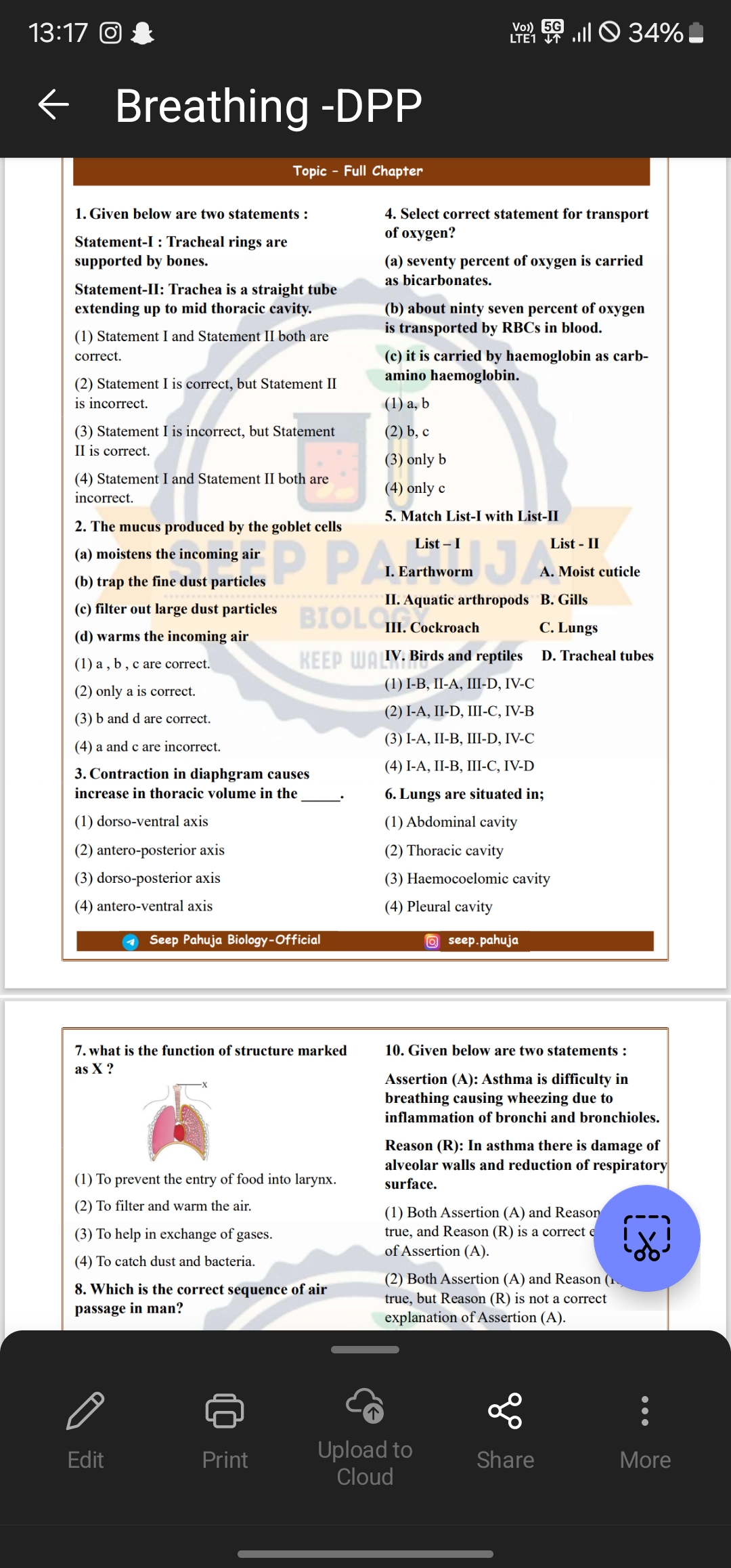Given below are two statements: Statement I: Tracheal rings are supported by bones. Statement II: Trachea is a straight tube extending up to mid thoracic cavity. Select the correct... Given below are two statements: Statement I: Tracheal rings are supported by bones. Statement II: Trachea is a straight tube extending up to mid thoracic cavity. Select the correct statement for transport of oxygen: (a) seventy percent of oxygen is carried as bicarbonates. (b) about ninety-seven percent of oxygen is transported by RBCs in blood. (c) it is carried by haemoglobin as carbamino haemoglobin.

Understand the Problem
The question is asking about various aspects of breathing and oxygen transport, as well as physiological mechanisms related to the respiratory system. It includes multiple choice questions regarding statements about tracheal rings, mucus produced by goblet cells, contraction of the diaphragm, lungs' location, and the function of specific structures related to breathing.
Answer
3 and only b
Statement I is incorrect, but Statement II is correct. The correct statement for transport of oxygen is about ninety-seven percent of oxygen is transported by RBCs in blood.
Answer for screen readers
Statement I is incorrect, but Statement II is correct. The correct statement for transport of oxygen is about ninety-seven percent of oxygen is transported by RBCs in blood.
More Information
Tracheal rings are made of hyaline cartilage, not bones. The trachea extends to the mid-thoracic cavity. Oxygen transport primarily occurs via hemoglobin in RBCs.
Tips
A common mistake is thinking tracheal rings are supported by bones; they are actually supported by cartilage.
Sources
- Trachea structure - vaia.com
- Trachea bifurcation - byjus.com
AI-generated content may contain errors. Please verify critical information